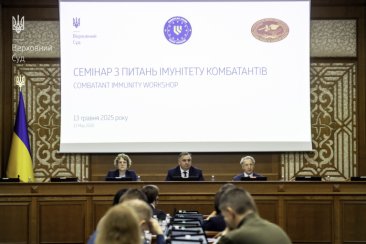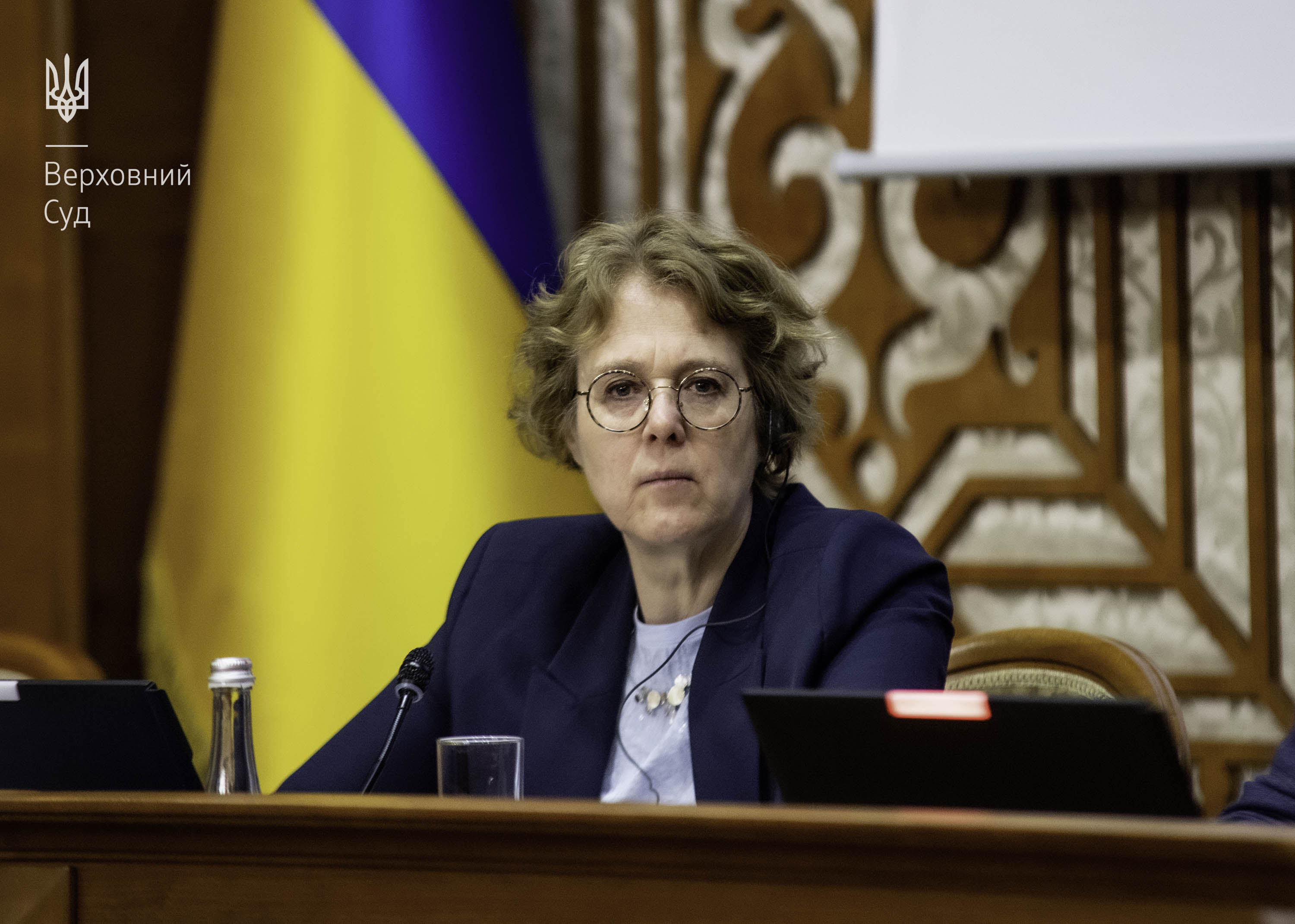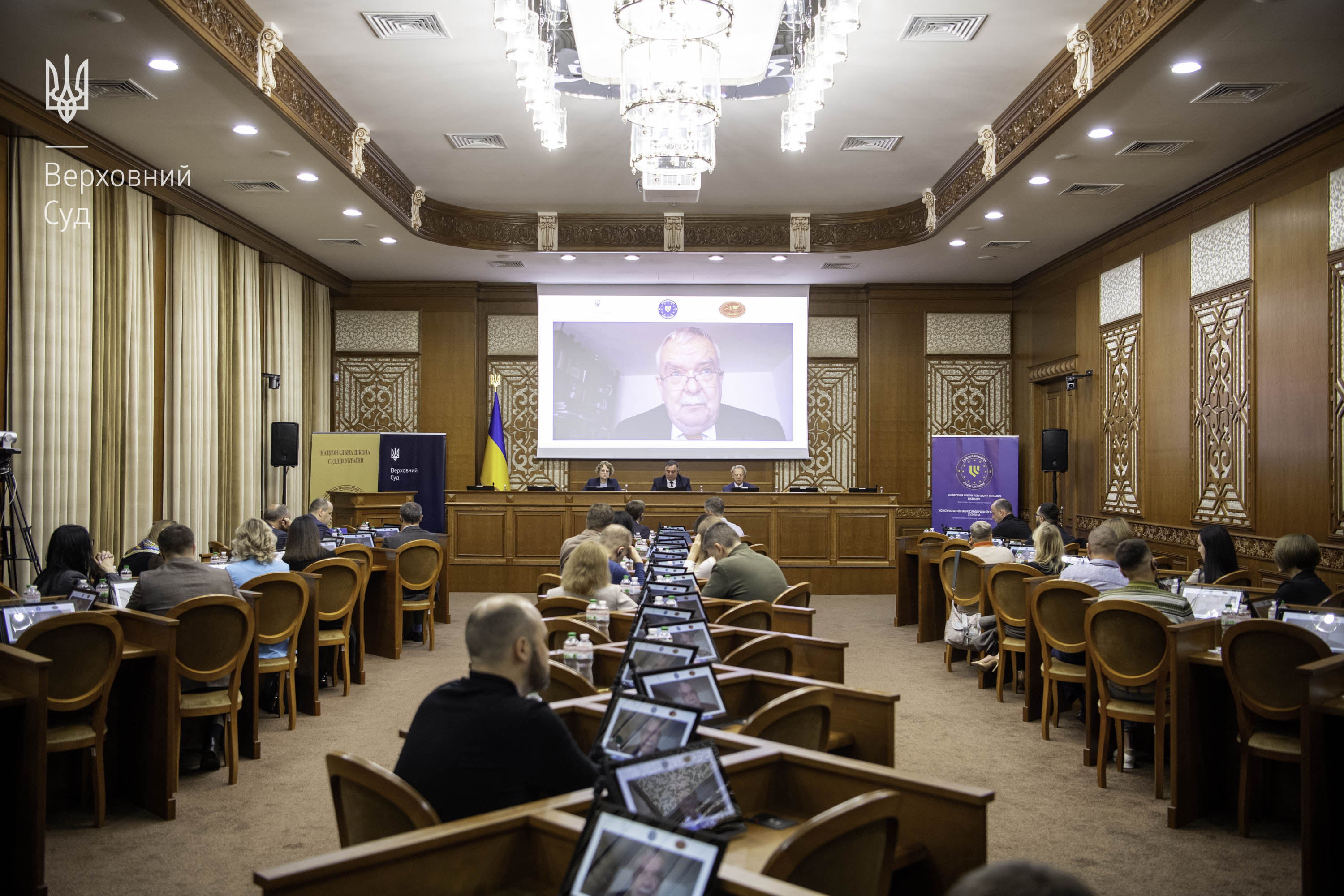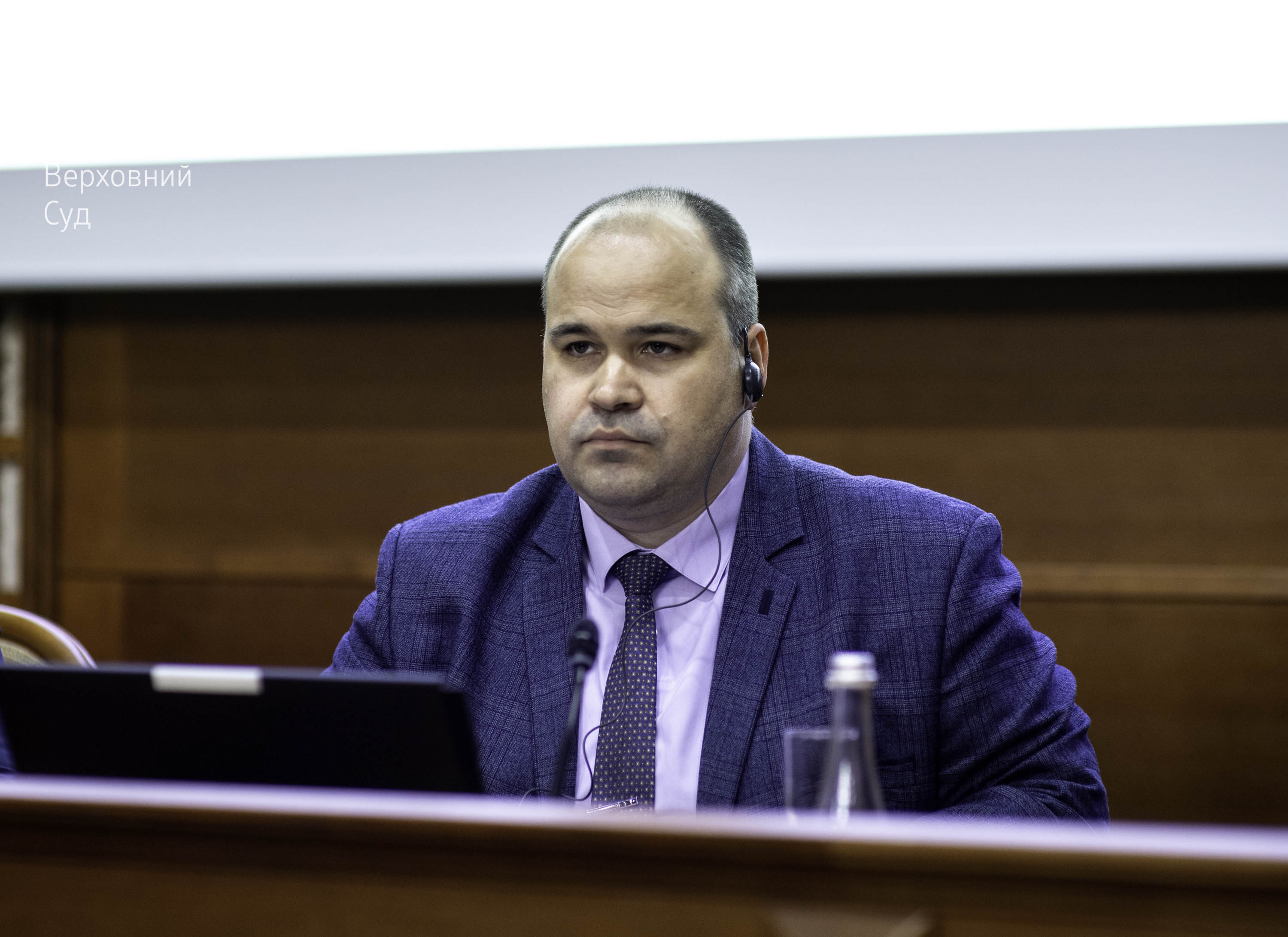Contact center of the Ukrainian Judiciary 044 207-35-46

Today, the norms of international humanitarian law are being put to the toughest test – that of war. It is especially important at this time not only to remain faithful to legal principles, but also to have a deep understanding of their essence, history and content in order to apply them effectively in practice.
In today's civilised world, issues such as the right to wage war or the status of combatants should not arise. However, if we have not yet developed a mechanism to prevent wars, we should at least discuss ways to improve the legal regulation of war and alleviate the suffering of those involved, including prisoners of war. In this context, the most important thing is to distinguish between actions committed by combatants, who are exempt from criminal liability for participating in hostilities, and cases of war crimes.
This was emphasised by Stanislav Kravchenko, President of the Supreme Court, during a workshop on the immunity of combatants in light of international humanitarian law, Ukrainian legislation and the prosecution of war crimes, which was held at the Supreme Court.
.jpg)
As the SC President noted, since the beginning of Russia's armed aggression against Ukraine in 2014, the Ukrainian legal system has faced complex issues related to the application of peacetime legislation in the context of war, including hybrid warfare.
Stanislav Kravchenko reminded that the legal position of the Grand Chamber of the Supreme Court of 28 February 2024 in case No. 415/2182/20 on determining the characteristics of the subject of a crime under Article 437 of the Criminal Code of Ukraine was key in this regard. 'This decision is a guideline at the national level for determining the range of persons who may be the subject of the said crime,' the SC President emphasised.
After Russia's full-scale invasion of Ukraine, the issues of determining the status of a combatant and the exchange of prisoners of war became even more acute for the legal community. Subsequently, the Verkhovna Rada of Ukraine adopted Law of Ukraine No. 2472-IX of 28 July 2022 ‘On Amendments to the Criminal Code, the Criminal Procedure Code and Other Legislative Acts of Ukraine Regarding the Regulation of the Procedure for the Exchange of Persons as Prisoners of War’ (entered into force on 19 August 2022), which provides for the release of a convicted person from serving a sentence or the cancellation of a preventive measure and the conduct of a special pre-trial investigation and trial in the absence of the accused (in absentia) if the authorised body decides to transfer the person for exchange as a prisoner of war, subject to their written consent.
"In the first months of the full-scale war, we clearly understood that our decisions must comply with all international standards of justice and be accepted by the legal community of the civilised world. That is why Ukrainian judges began to actively study and apply the Geneva Conventions in their practice, and today we already have considerable experience in this area," Stanislav Kravchenko said.
The President of the Supreme Court also thanked the European Union Advisory Mission for Civilian Security Sector Reform in Ukraine and the National School of Judges of Ukraine for co-organising the event and for their partnership.

On behalf of the European Union Advisory Mission, Magda Koole, Senior Advisor on Adjudication of International Crimes at the EUAM in Ukraine, welcomed the seminar participants. She expressed her respect for her Ukrainian colleagues working in wartime conditions and her gratitude to the Supreme Court and the Prosecutor General's Office for their fruitful cooperation, as the best results can only be achieved together.
In his welcoming speech, Mykola Onishchuk, Rector of the National School of Judges of Ukraine, noted that the legal status of combatants and the specifics of the adjudication of war crimes are sensitive issues that require careful analysis in light of international humanitarian law standards. Therefore, this topic is constantly on the agenda of judicial training and professional discussions.
During the seminar, Marco Sassòli, Honorary Professor of International Law at the University of Geneva (Switzerland) and Associate Professor at the University of Quebec in Montreal (Canada), spoke about the specific features of combatants' immunity under international law and focused on the relationship between such immunity and complicity in the crime of aggression.

Judge of the Grand Chamber of the Supreme Court Mykola Mazur drew attention to the discrepancies between the provisions of the Rome Statute of the ICC and the Criminal Code of Ukraine. In particular, he noted that Article 8 of the Statute explicitly refers to a special subject — a person who effectively exercises control over the political or military actions of a state. However, for a long time, there was no such provision in national legislation, which created difficulties in qualifying the actions of combatants and bringing to justice persons who had no real influence on the conduct of an aggressive war.

The judge analysed the practice of applying Article 437 of the Criminal Code of Ukraine, noting that at the beginning of the Russian Federation's aggression (2014–2017), a number of convictions concerned lower-level combatants. In response to these challenges, the Grand Chamber of the Supreme Court formulated a clear legal position: only a person who holds a leadership position or has significant influence on political or military processes can be the subject of the crime of aggression.
"The acts defined in Art. 437 of the Criminal Code of Ukraine may be committed by persons who, by virtue of their official authority or actual public position, are able to exercise effective control over or direct political or military actions, and/or significantly influence political, military, economic, financial, informational and other processes in their own country or abroad, and/or direct certain areas of political or military actions," explained Mykola Mazur.
The speaker also focused on the practice of the Nuremberg Tribunal and contemporary international legal approaches to the classification of war crimes.